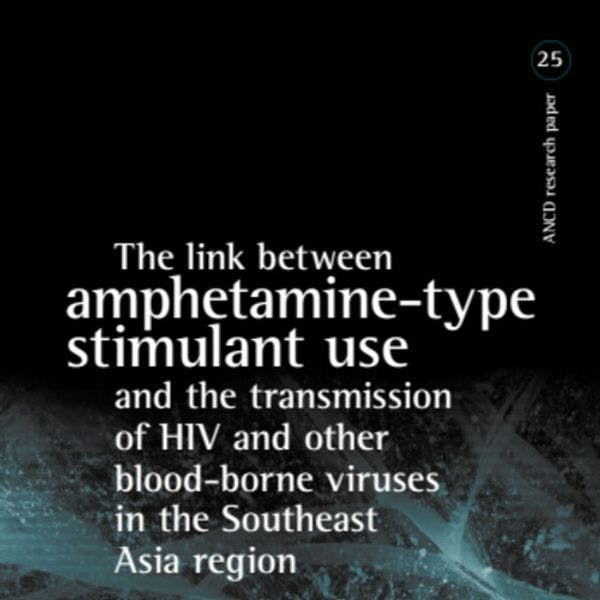The link between amphetamine-type stimulants use and the transmission of blood-borne viruses in Southeast Asia
A new report commissioned by the Asia-Pacific Drugs and Development Issues Committee (APDDIC) of the Australian National Council on Drugs (ANCD) and prepared by Burnet Institute and the National Drug Research Institute (NDRI) at Curtin University, confirms that amphetamine-type stimulant (ATS) use is a major public health issue in the Southeast Asia region and swift action is needed to prevent the spread of HIV and other blood-borne viruses.
The report was commissioned to investigate growing concerns that HIV and blood borne virus risk is increasing through the use of amphetamine-type stimulant. It provides a much needed picture of HIV risk among ATS users in the Southeast Asia region and the types of interventions available and was made possible through funding from AusAID and the Australian Government Department of Health.
Amphetamine-type stimulant are the second most widely used drug across the globe, after cannabis, and their use continues to increase. This ANCD report focuses on amphetamine-type stimulant use in the 11 countries in Southeast Asia (Brunei Darussalam, Cambodia, China (including Hong Kong and Macau), Indonesia, Lao People's Democratic Republic (PDR), Malaysia, Myanmar, Philippines, Singapore, Thailand and Viet Nam) and demonstrates the need for prevention strategies for people who inject drugs to avert the spread of HIV.
Keep up-to-date with drug policy developments by subscribing to the IDPC Monthly Alert.
Downloads
Regions
Related Profiles
- Australian National Council on Drugs (ANCD)
